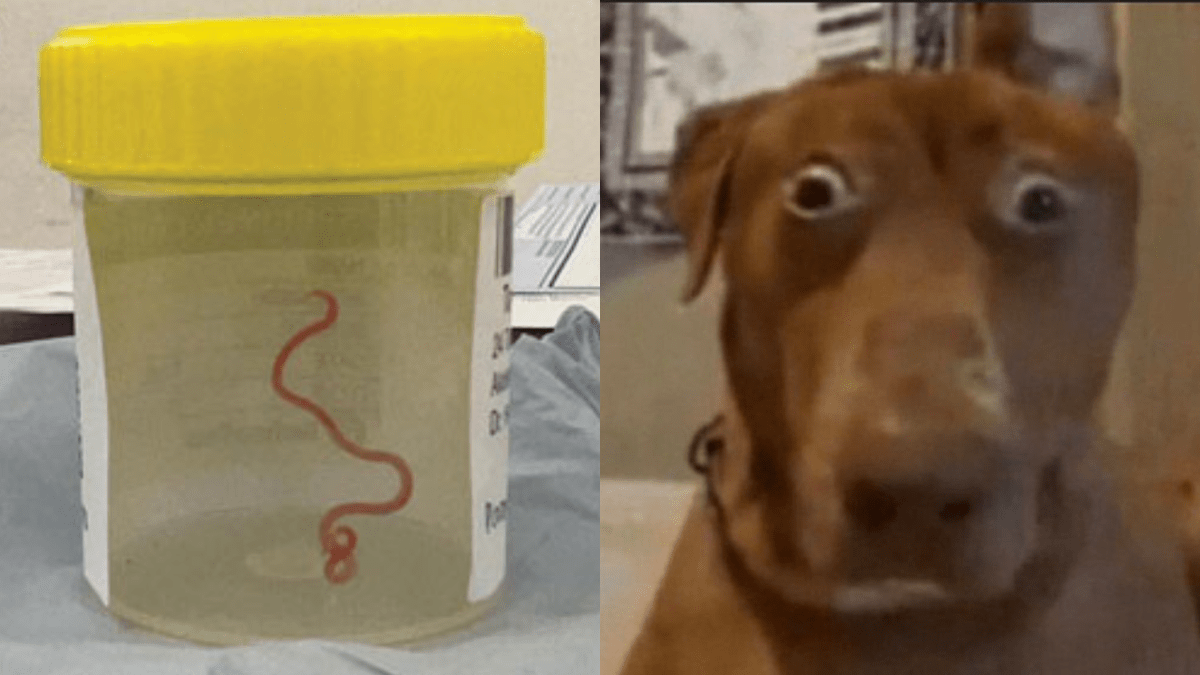
Do you have abdominal pain? Coughing? Depression? Or abnormally runny stool? Maybe it’s burn out. Or it could possibly be an eight-centimetre-long roundworm that has called your cranium home. Unfortunately, this was the case for a woman in Australia who was discovered to have the world’s first case of a new parasitic infection.
Okay, before I kick off with this incredible tale of worm brains, obviously I am not a medical professional. So, if you have any of those symptoms listed above, please consult your doctor or GP for more information.
But yes, a 64-year-old Aussie woman has been involved in a remarkable scientific discovery — the world’s first known case of a roundworm from a carpet python in a human brain.
Researchers at the Australia National University (ANU) and Canberra Hospital recently published a report about an eight-centimetre-long parasite, with all details about the discovery.
The patient lives in southeastern New South Wales, and researchers said she might’ve picked up the roundworm after “collecting a type of native grass, Warrigal greens, beside a lake near where lived”. It is believed that a python had “shed” its parasite through its poop.
“The patient used the Warrigal greens for cooking and was probably infected with the parasite directly from touching the native grass or after eating the greens,” the report reads.

According to the report, when the Ophidascaris robertsi was yoanked from the patient’s brain, it was alive and wriggling. It is also reported that there are still larvae within the woman’s organs, including her lungs and liver.
Karina Kennedy, Canberra Hospital’s Director of Clinical Microbiology and Associate Professor at ANU Medical School, said the patient’s symptoms began in January 2021.
“She initially developed abdominal pain and diarrhoea, followed by fever, cough and shortness of breath,” she said.
“In retrospect, these symptoms were likely due to [the] migration of roundworm larvae from the bowel and into other organs, such as the liver and the lungs. Respiratory samples and a lung biopsy were performed; however, no parasites were identified in these specimens.”
It wasn’t until 2022, when the woman started to experience depression and forgetfulness, that the parasite was found — which was located via an MRI scan.
“A neurosurgeon at Canberra Hospital explored the abnormality and it was then that the unexpected eight-centimetre roundworm was found. Its identity was later confirmed through parasitology experts, initially through its appearance and then through molecular studies,” the report continues.

Leading ANU and Canberra Hospital infectious disease expert and co-author of the study, Associate Professor Sanjaya Senanayake, said: “This is the first-ever human case of Ophidascaris to be described in the world.
“To our knowledge, this is also the first case to involve the brain of any mammalian species, human or otherwise.
“Normally, the larvae from the roundworm are found in small mammals and marsupials, which are eaten by the python, allowing the life cycle to complete itself in the snake.”
Thankfully, Senanayake said that this parasite doesn’t transmit through humans, so it won’t cause the next pandemic. However, because snakes are all over the world, we should be prepared to see more cases like this in the future and within other countries.
To avoid the newfound fear of roundworms in the brains, Kennedy has reiterated the importance of washing hands and food safety.
“People who garden or forage for food should wash their hands after gardening and touching foraged products. Any food used for salads or cooking should also be thoroughly washed, and kitchen surfaces and cutting boards, wiped [down] and cleaned after use,” Kennedy said.
Honestly, kudos to this woman for being so brave and sharing her discovery. As the report mentions, “It is never easy or desirable to be the first patient in the world for anything,” but here we are with more knowledge about the world around us.
I think, for now, I’m doing my hikes in one of those giant plastic bubbles ‘cos this story has made my scalp super itchy.
If you see me rolling down the Blue Mountains in a Zorb Ball like Glinda the Good Witch, it’s because of these worms.



